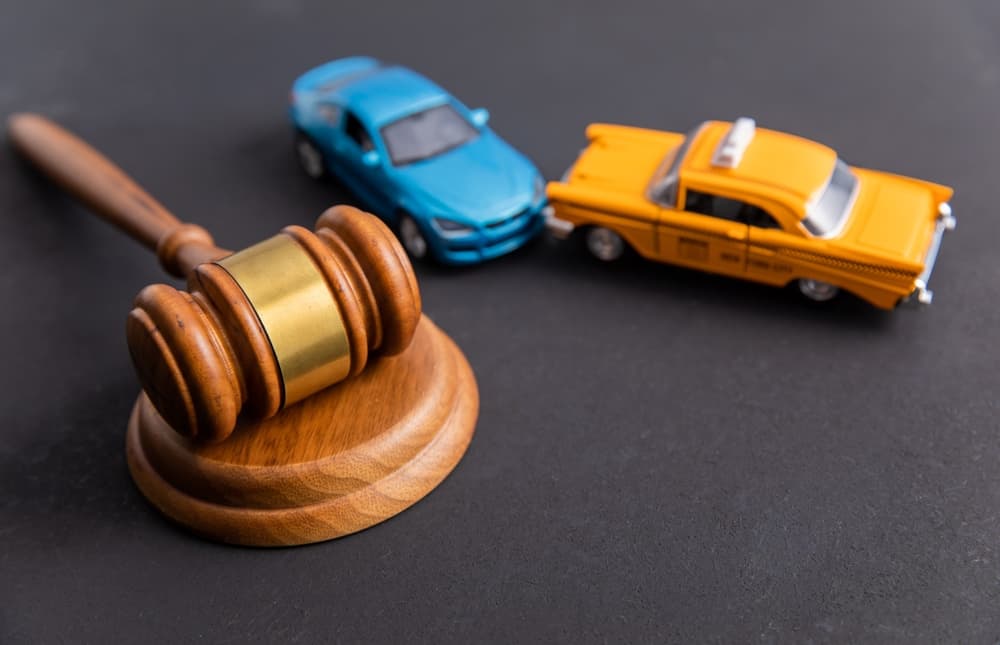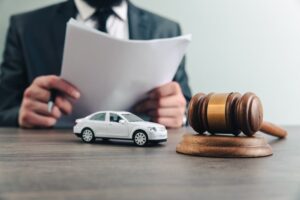
Car accidents are traumatic and stressful, but knowing what steps to take afterward makes a significant difference in protecting your rights and ensuring your safety. Consulting a car accident lawyer can provide crucial guidance during this challenging time.
Here’s a comprehensive guide on what to do after a car accident in Lexington, Kentucky.
First, prioritize safety. Check yourself and your passengers for injuries. If anyone is injured, call 911 immediately. Even minor injuries require medical attention, as some may not be immediately apparent.
If it’s safe, move your vehicle to the side of the road to prevent further accidents. Turn on your hazard lights to alert other drivers. If you can’t, stay inside with your seatbelt fastened until help arrives.

Kentucky law requires reporting any car accident that results in injury, death, or property damage exceeding $500.
Call the police at the scene so they can document the accident. The police report is crucial for insurance claims and any legal actions.
Provide the authorities with accurate and complete information about the accident. Avoid admitting fault or making speculative statements. Stick to the facts.
Exchange essential information with the other driver involved in the accident:
Additionally, gather contact information from any witnesses who saw the accident. Their statements could support your version of events.
Document the accident scene for insurance and legal purposes. Take photos and videos of:
Also, note the date, time, and location of the accident. Detailed documentation helps recreate the accident and support your case if disputes arise.

Even if you feel fine after the accident, see a doctor. Some injuries, such as whiplash or internal injuries, don’t show symptoms immediately. A medical professional can diagnose and treat injuries early, preventing complications.
Keep all medical records, bills, and receipts related to your treatment. They are necessary for your insurance claim and any potential legal action.
Report the accident to your insurance company as soon as possible. Provide them with all the information you’ve gathered, including the police report, photos, and contact information for the other driver and witnesses.
Be honest and thorough in your communication with your insurance company. Cooperate fully with their investigation but avoid providing recorded statements without consulting an attorney. Police use those statements against you later.
Kentucky operates under a no-fault system, meaning your insurance company will cover your medical expenses and lost wages regardless of fault. Personal Injury Protection (PIP) insurance provides this protection.
You can step outside the no-fault system and file a claim against the other driver if your medical expenses exceed $1,000, you suffer permanent injury, or you have significant disfigurement. Understanding your insurance policy and coverage extent is pivotal.
If you are seriously injured or face disputes about fault or compensation, consult a personal injury attorney. An experienced attorney will guide you through the legal process, help you understand your rights, and advocate for you.
In Lexington, many reputable attorneys focus on car accidents and personal injury cases. Look for an attorney with a successful track record in handling similar cases who offers a free initial consultation.
Keep meticulous records of all documents and communications, including:
Organized records help you manage your case more effectively and ensure everything is readily available.
Resolving a car accident claim takes time. To track its progress, contact your insurance company and legal representatives regularly. Respond promptly to requests for additional information and keep copies of all correspondence.
Car accidents can be traumatic, and it’s normal to experience a range of emotions afterward. Don’t neglect your mental health. Seek support from friends, family, or a mental health professional if you’re struggling to cope with the aftermath of the accident.
In Kentucky, the statute of limitations for filing a personal injury lawsuit after a car accident is generally two years from the accident date or the last no-fault payment.
The limit for property damage claims is two years from the date of the accident. Know your time limits to ensure you don’t lose your right to file a claim.
Understanding Kentucky’s insurance laws and consulting with an attorney protects your rights and gets you the compensation you deserve.

Even if you weren’t hurt in a car accident, hiring a lawyer can still be beneficial. Here’s why:
Property damage claims are complex, and repairing or replacing your vehicle is costly. A lawyer can negotiate a fair settlement for your vehicle and other damaged property, ensuring you receive proper compensation.
Insurance companies minimize payouts and typically offer a low settlement for your vehicle’s damage. A lawyer understands these tactics and advocates for a fair settlement on your behalf.
Establishing fault impacts your insurance rates and future claims. If the insurance company disputes fault, a lawyer gathers evidence, speaks to witnesses, and builds a strong case to prove the other party’s liability, protecting you from unjust blame.
Consulting a lawyer ensures you understand your rights if medical issues arise later. They can help you seek compensation for injuries that don’t appear until after the initial accident.
A lawyer handles the legal aspects of your accident, allowing you to focus on returning to normal life.
Hiring a personal injury lawyer can protect your interests and ensure fair treatment, even if you weren’t injured in the collision.
Call Maze Law for a free, confidential consultation.
